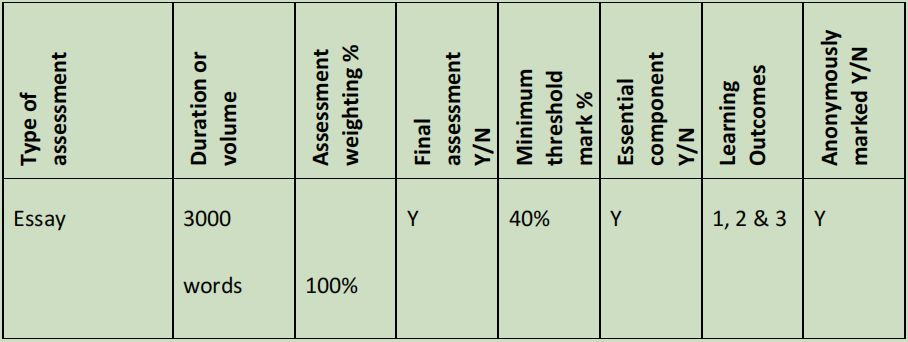CYPFP1001 Lifespan Conception to 18: Basic Module Information Assignment
- Subject Code :
CYPFP1001
- University :
De Montfort University Leicerster Exam Question Bank is not sponsored or endorsed by this college or university.
- Country :
United Kingdom
Module description
(including outline content)
This module introduces key theoretical models and perspectives on child growth and development from conception to age 18 years. Throughout the module there will be the opportunity to research and explain the impact of biological, external and internal factors on healthy growth and expected development. The module looks at the behaviours and decisions of families, taking into account difficulties they may be experiencing, to determine their impact on the child.
The module addresses specific needs and circumstances which may affect children, young people and families at different stages from concepetion to 18 years and considers services available that could address issues such as poor quality or an absence of ante-natal care; sequence and pattern of expected child and adolescent development and why this may not follow the norms; biological, external and internal factors that may impact adversely on a childs development; delayed language and communication development; neglect and abuse of children; failure to thrive and/or form attachments; language and communication barriers when working with families.
Learning outcomes
(please indicate in brackets at the end of each learning outcome which assessment task(s) will test the achievement of the learning outcome)
- Demonstrate understanding of key biological, psychological and sociological theoretical perspectives used to explain human growth and development from conception up to 18 years of age (Assignment 1)
- Explain the impact of social, health and environmental factors on human growth and development, in the UK and internationally (Assignment 1 )
- Identify services available to children, young people and families and be able to locate own practice within the wider network (Assignment 1 )
Assessment

Assessment Notes
Assessment will be in the form of an essay. . All submitted work will be mapped to the apprenticeship standards Knowledge, Skills and Behaviours.
Attendance Notes
The programme operates an attendance policy and students are required to attend a minimum of 70% of the taught sessions of the module.
Although the minimum attendance expected is 70%, students who have between 65% and 70% attendance due to extenuating circumstances will have their overall profile considered at the end of the year (i.e.: across all modules at that level). A decision will then be made by academic staff whether to agree a fail on attendance, depending on the overall pattern of attendance and any other factors which are relevant.
Are you struggling to keep up with the demands of your academic journey? Don't worry, we've got your back! Exam Question Bank is your trusted partner in achieving academic excellence for all kind of technical and non-technical subjects.
Our comprehensive range of academic services is designed to cater to students at every level. Whether you're a high school student, a college undergraduate, or pursuing advanced studies, we have the expertise and resources to support you.
To connect with expert and ask your query click here Exam Question Bank

